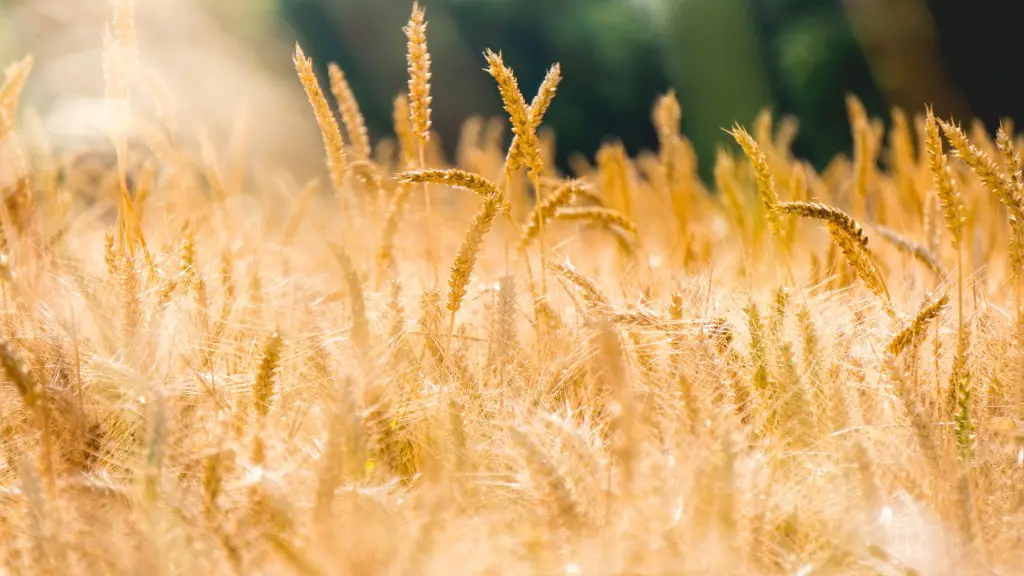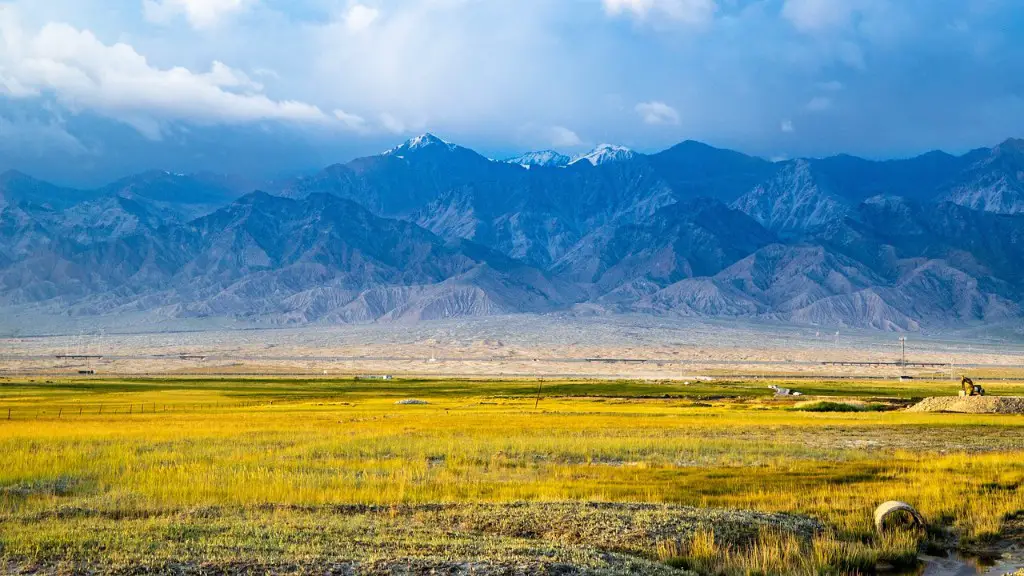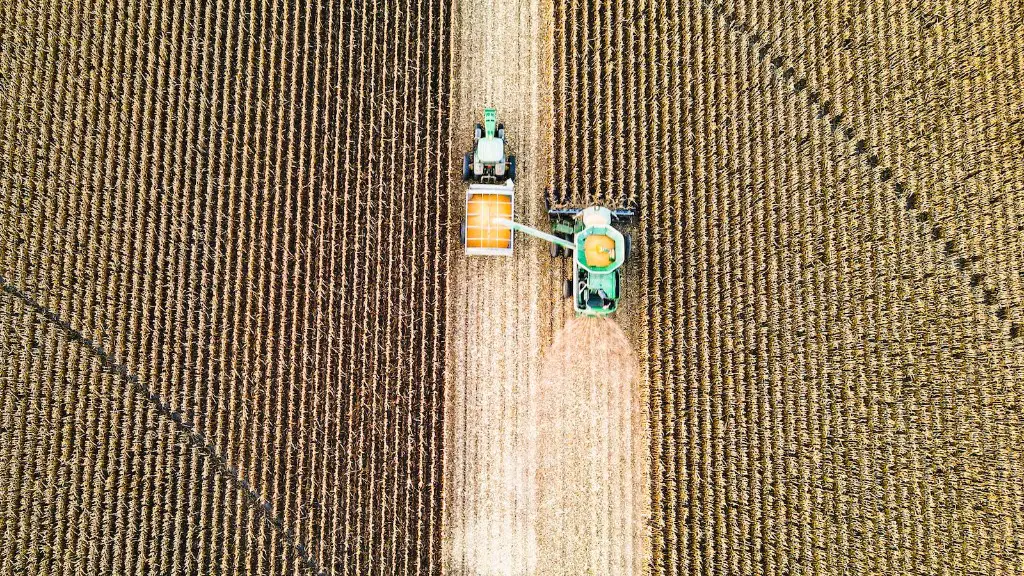There is no easy answer to the question of whether or not biotechnology is good or bad for agriculture. On the one hand, biotechnology has the potential to improve crop yields and resistances to pests and disease. On the other hand, there are concerns about the potential for negative environmental impacts and the development of resistant strains of pests and diseases. Ultimately, the verdict on biotechnology will be decided by how it is used and regulated.
It is difficult to label biotechnology as either good or bad for agriculture. It can be seen as good because it has the potential to increase crop yields and improve food security. It can also be seen as bad because it is a relatively new technology with unknown risks and potential negative impacts on the environment.
What are the disadvantages of biotechnology in agriculture?
There is a possibility that genetically modified crops will not be viable in the long term due to environmental factors. Genetically modified plants or microorganisms have the potential to spread their genetic information throughout an ecosystem, resulting in negative consequences such as reduced biodiversity.
Biotechnology is a process that uses living organisms to create or modify products. It has a wide range of applications, including the improvement of plant and animal breeds, the production of food and drugs, and the cleaning of contaminated environments.
The main advantages of biotechnology are that it can improve the nutritional quality of food, transfer desired traits of plants and animals to new generations, and minimize the use of pesticides. However, there are also some disadvantages to consider, such as a decrease in biodiversity and potential negative impacts on health and the environment.
Is agricultural biotechnology harmful
Since GMO foods were introduced in the 1990s, extensive research has shown that they are just as safe as non-GMO foods. This is true for both human and animal consumption. GMO plants fed to farm animals are as safe as non-GMO animal food.
Biotechnology has helped create biodegradable products which don’t have that much of an environmental footprint as of conventional products. Products such as biodegradable plastics have been very helpful in reducing land pollution and number of landfills due to reduced use of regular plastics.
What is the advantage of agricultural biotechnology?
Agricultural biotechnology can boost food production in both the developed and the developing worlds and reduce vulnerability to pests, viruses, and drought. Agricultural biotechnology is an important tool in the world’s effort to combat food insecurity and malnutrition. In the developed world, biotechnology can help farmers increase yields and reduce inputs costs. In the developing world, biotechnology can help smallholder farmers increase yields and improve their livelihoods.
Biotechnology has led to some amazing advances in medicine and agriculture, but it has also had some unintended consequences. One of the most significant problems is the loss of biodiversity. With the ability to manipulate genes, we have created new species of plants and animals that are often very different from the originals. This has led to the extinction of many naturally occurring species as well as the loss of genetic diversity within species.
Another problem with biotechnology is environmental contamination. Genetically modified organisms (GMOs) can spread their modified genes to other organisms, potentially causing harm to the environment. For example, herbicide-resistant genes from GMOs can spread to weeds, making them harder to control.
Finally, the intellectual property rights and patents associated with biotechnology can be exploited, preventing others from using the technology for their own benefit. This can stifle innovation and limit the potential applications of biotechnology.
What is negative about biotechnology?
Genetic engineering is the process of manipulating genes in a living organism to change its characteristics. This can be done by inserting, removing, or replacing genes.
Genetic engineering crosses and violates natural boundaries of reproduction by crossing genes between unrelated species that would never crossbreed naturally. This is done in a potentially hazardous way, as it can lead to unexpected interactions and unpredictable effects.
This technology is still relatively new, and as such, there is a lack of long-term data on its safety and efficacy. Additionally, there are ethical concerns associated with genetic engineering, as it can be used to create “designer babies” with specific traits.
Overall, genetic engineering is a controversial topic, and its use should be carefully considered before moving forward with any application.
Plant Biotechnology has been instrumental in augmenting crop productivity to improve food, feed, and fiber security, and in reducing the environmental footprint of agriculture. It has played a key role in developing new crop varieties that are resistant to pests and diseases, and tolerant to abiotic stresses such as drought and salinity. biotech crops have also been developed with enhanced nutrition and quality traits. The adoption of biotech crops has contributed to significant increases in global crop production, while reducing the need for chemical pesticides and fertilizer inputs.
What is the problem of application of biotechnology in agriculture
The use of agrochemicals is a major contributor to environmental pollution. Additionally, it is difficult to further increase crop yield using existing varieties and conventional breeding. These factors make it difficult for farmers in developing countries to afford these chemicals.
1. Health risks associated with GM crops include unexpected gene interactions, cancer risks, allergenic potential, horizontal gene transfer, and antibiotic resistance.
2. Unexpected gene interactions may occur when the transferred gene construct differs from the expected outcome due to gene interactions.
3. Cancer risks associated with GM crops may be lower than with non-GM crops due to the lower amount of pesticide required.
4. Allergenic potential may be present in GM crops due to the presence of novel proteins.
5. Horizontal gene transfer (HGT) may occur between GM crops and other organisms, including humans, leading to the transfer of genes from one organism to another.
6. Antibiotic resistance may develop in GM crops due to the use of antibiotics in the production process.
Can Biotech food harm the environment?
Biodiversity loss is a serious problem that can have negative impacts on non-target organisms and on soil and water ecosystems. For example, the expansion of GM herbicide-tolerant corn and soy, which are twinned with herbicides, has destroyed much of the habitat of the monarch butterfly in North America. This is just one example of how the use of GM crops can have negative impacts on the environment.
Biotechnology can have both positive and negative impacts on society and the environment. On the plus side, biotechnology can lead to more nutritious and hearty crops, efficient use of natural resources, and longer shelf life for food products. On the downside, biotechnology can result in biodiversity loss, epidemics, and health problems.
What are the biggest problems in biotechnology
Personalized medicines are a new and promising area of medicine that leverage on human genetics to make more effective treatments. However, there are a number of challenges that need to be overcome before they can be widely adopted. Firstly, loss of patents on drugs can lead to competition from cheaper biosimilars. Secondly, the high costs of research and development (R&D) can limit the uptake of new drugs. Lastly, the low productivity of R&D means that many promising drugs never make it to market. Despite these challenges, personalized medicines offer the potential to transform the way we treat diseases and improve patient outcomes.
Some people worry that using biotechnology in the environment could result in replacing the natural world with an artificial one that deprives people of having contact with nature in its natural state. However, there are many benefits to using biotechnology to improve the environment, such as reducing pollution and cleaning up contaminated areas.
What are the negative impacts of agricultural technology?
Agricultural technologies have had a negative impact on the environment in a number of ways. They have contributed to soil degradation through the extensive use of chemicals and heavy machinery, which have compacted and impoverished the soil. They have also polluted the air and water through the use of pesticides and fertilizers, and contributed to the loss of biodiversity through the destruction of natural habitats. In addition, they have disrupted food webs by introducing new species into ecosystems and by altering the genetic makeup of crops.
Although there are many benefits to biotechnology, there are also some societal concerns that come with it. The four main concerns are ethical, safety, bioterrorism and environmental issues.
Ethical concerns are mainly about the manipulation of genes and the potential for creating “designer babies.” Safety concerns relate to the possibility of unforeseen side effects from genetically modified organisms (GMOs). Bioterrorism concerns relate to the possibility of using biotechnology for malicious purposes, such as creating biological weapons. Environmental concerns relate to the possibility of negative impacts from GMOs on the environment.
Overall, biotechnology has the potential to be a powerful tool for good. However, it is important to be aware of the potential risks and concerns associated with it.
Final Words
The jury is still out on whether biotechnology is good or bad for agriculture. Some people argue that it has helped to create more resilient crops that can resist pests and diseases, while others contend that it has led to the development of more widespread and difficult-to-control pests and diseases.
There are pros and cons to biotechnology in agriculture. The benefits of biotechnology include increased crop yields, reduced need for pesticides, and improved nutrition. The downside of biotechnology is that it can lead to the development of herbicide-resistant weeds, increase the use of GMOs, and create ethical concerns.





